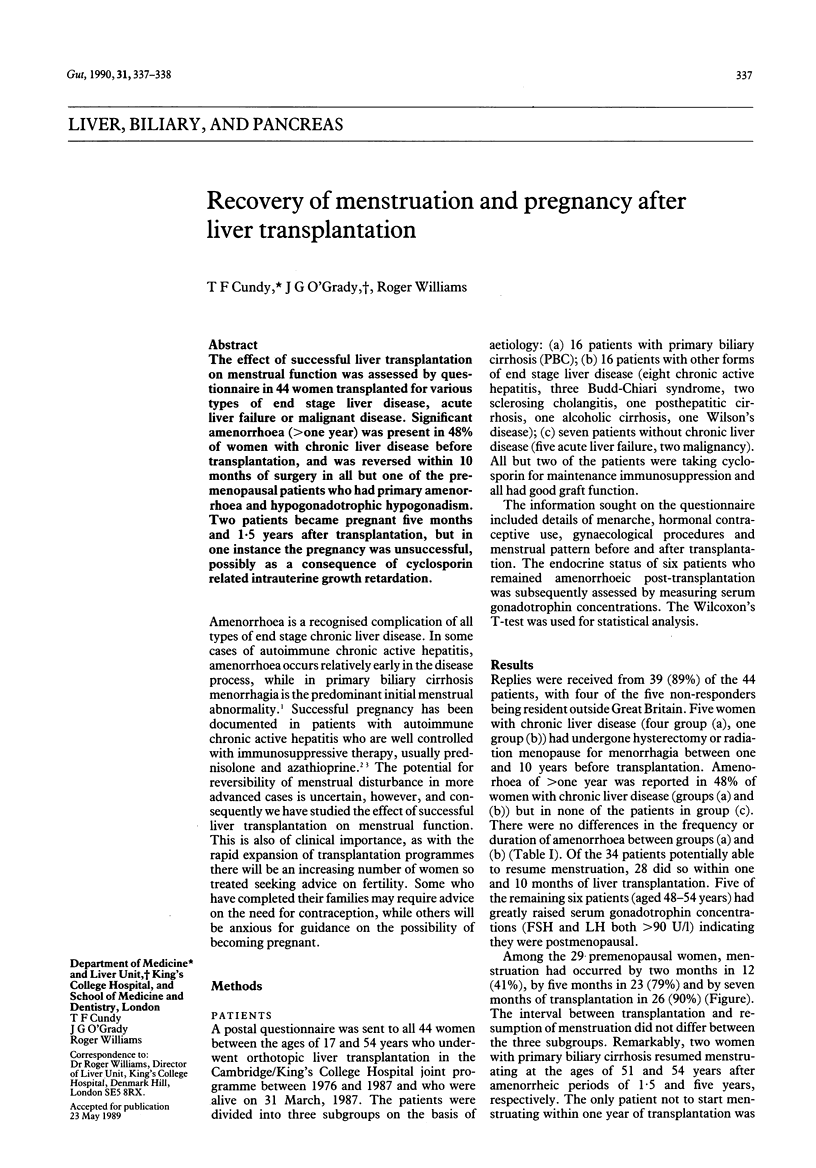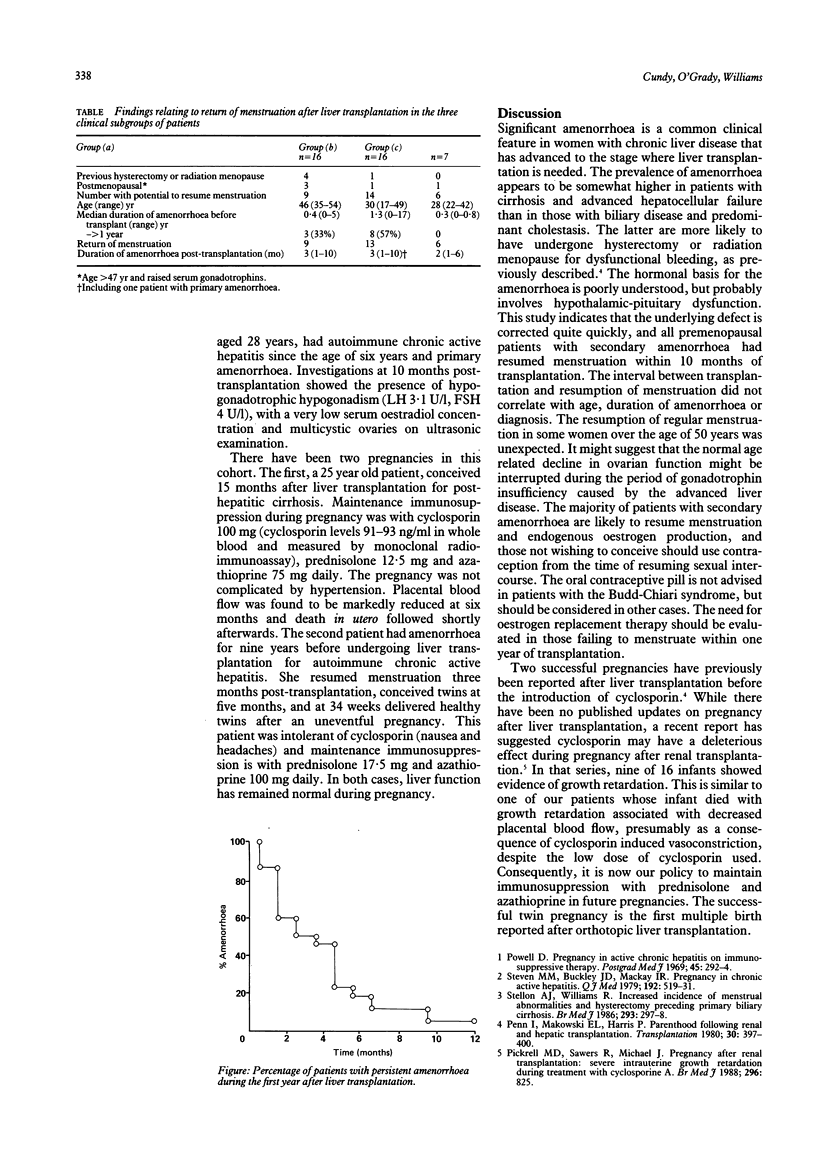Abstract
The effect of successful liver transplantation on menstrual function was assessed by questionnaire in 44 women transplanted for various types of end stage liver disease, acute liver failure or malignant disease. Significant amenorrhoea (greater than one year) was present in 48% of women with chronic liver disease before transplantation, and was reversed within 10 months of surgery in all but one of the premenopausal patients who had primary amenorrhoea and hypogonadotrophic hypogonadism. Two patients became pregnant five months and 1.5 years after transplantation, but in one instance the pregnancy was unsuccessful, possibly as a consequence of cyclosporin related intrauterine growth retardation.
Full text
PDF

Selected References
These references are in PubMed. This may not be the complete list of references from this article.
- Penn I., Makowski E. L., Harris P. Parenthood following renal and hepatic transplantation. Transplantation. 1980 Dec;30(6):397–400. doi: 10.1097/00007890-198012000-00001. [DOI] [PubMed] [Google Scholar]
- Pickrell M. D., Sawers R., Michael J. Pregnancy after renal transplantation: severe intrauterine growth retardation during treatment with cyclosporin A. Br Med J (Clin Res Ed) 1988 Mar 19;296(6625):825–825. doi: 10.1136/bmj.296.6625.825. [DOI] [PMC free article] [PubMed] [Google Scholar]
- Powell D. Pregnancy in active chronic hepatitis on immunosuppresse therapy. Postgrad Med J. 1969 Apr;45(522):292–294. doi: 10.1136/pgmj.45.522.292. [DOI] [PMC free article] [PubMed] [Google Scholar]
- Stellon A. J., Williams R. Increased incidence of menstrual abnormalities and hysterectomy preceding primary biliary cirrhosis. Br Med J (Clin Res Ed) 1986 Aug 2;293(6542):297–298. doi: 10.1136/bmj.293.6542.297. [DOI] [PMC free article] [PubMed] [Google Scholar]


